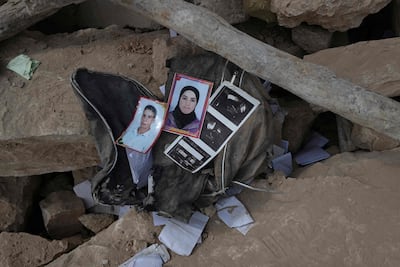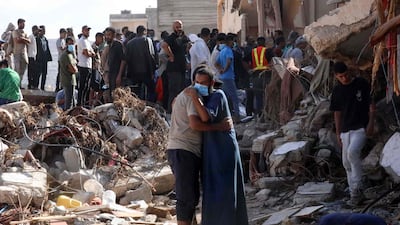No one can fail to have been moved by the harrowing images coming out of Libya this week, where floods caused by Storm Daniel have claimed thousands of lives, smashed through dams, swept away entire neighbourhoods and led to infrastructural damage of almost unprecedented scale. As fellow North African nation Morocco gets to grips with the death and destruction of its own recent disaster – Friday’s 6.8-magnitude earthquake – Libyans will face similar challenges in the days, weeks and months ahead.
However, although both nations have suffered a grievous loss of human life and profound physical damage, their circumstances are very different. Whereas Morocco operates under a stable and unified government, one that can design and implement risk assessments and disaster response plans, Libya remains divided between two rival political authorities that also must contend with the presence of armed groups outside state control.
Years of political feuding by Libya’s various factions, which has at times spilled over into violence, has not only affected the country’s governance; it has hampered its ability to prepare for and deal with crises such as these. This is reflected in the vastly different number of deaths caused by the same storm across the Mediterranean in Greece last week.

In Greece, three days of heavy rains caused widespread damage and killed more than a dozen people. Although tragic, this loss of life was not nearly on the scale seen thus far in Libya, where the number of missing people alone has passed the 10,000 mark – and this is despite Greece having a larger population than Libya. Although there have been some criticisms of the Greek state’s preparedness for and response to Storm Daniel, the country’s stable governance and strong regional relationships, such as that with the EU, make a faster recovery much more likely.
Libya’s conflict has left it with crumbling and inadequate infrastructure. Intisar Shennib, a member of the House of Representatives – the legislature of Libya’s eastern government – told The National the country was “not equipped” to handle the type of flooding that struck on Sunday. “The resources inside Libya aren't enough to face this tragedy,” she said. Given that Libya has Africa’s largest reserves of oil, the fact that its leaders cannot muster the resources to cope with floods and other disasters is a tragic reflection of the political paralysis that has dogged the nation for so long.
And while domestic cohesion is vital to meet such challenges, it is also important for making the most of outside help. Whereas the international community, regional allies and NGOs can work closely with a united Moroccan government, the existence of different authorities and centres of power in Libya complicates what is already a difficult situation. What is certain is that Libya will need help to recover, but it must be, analyst Ethan Chorin recently noted in The National, “from friends who see the country as a potential asset, not a perpetual problem, or a lever to score domestic political points”.
This is a moment of profound national crisis for Libya. However, it is also a moment for Libyans to come together for the good of their country. That means moving beyond the divisions of the past and beginning the process of building a state that can not only respond to sudden disaster but prepare for them and rebuild a better future. Although these early days of grief, pain and acute need are not the right time for that conversation, there will come a time when Libyans must, for the common good, set aside merely managing conflict and disunity.


